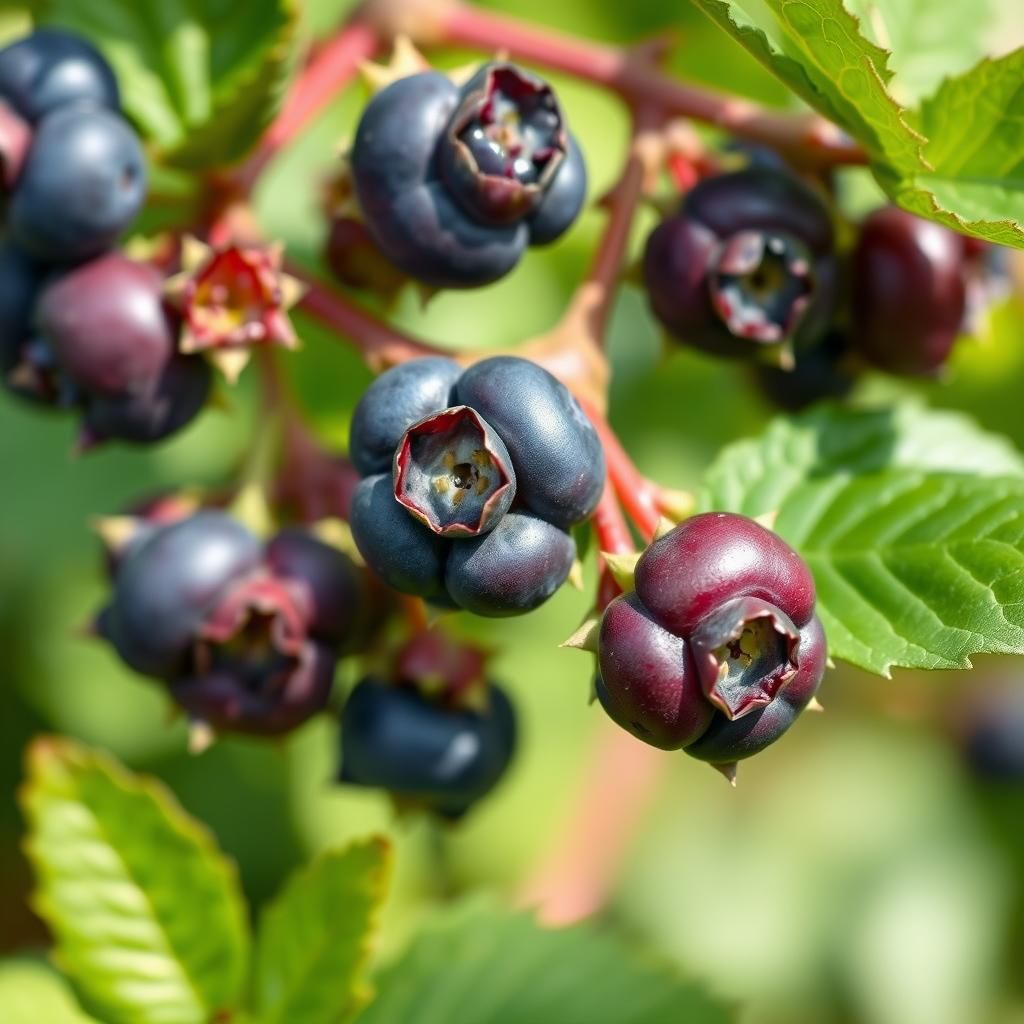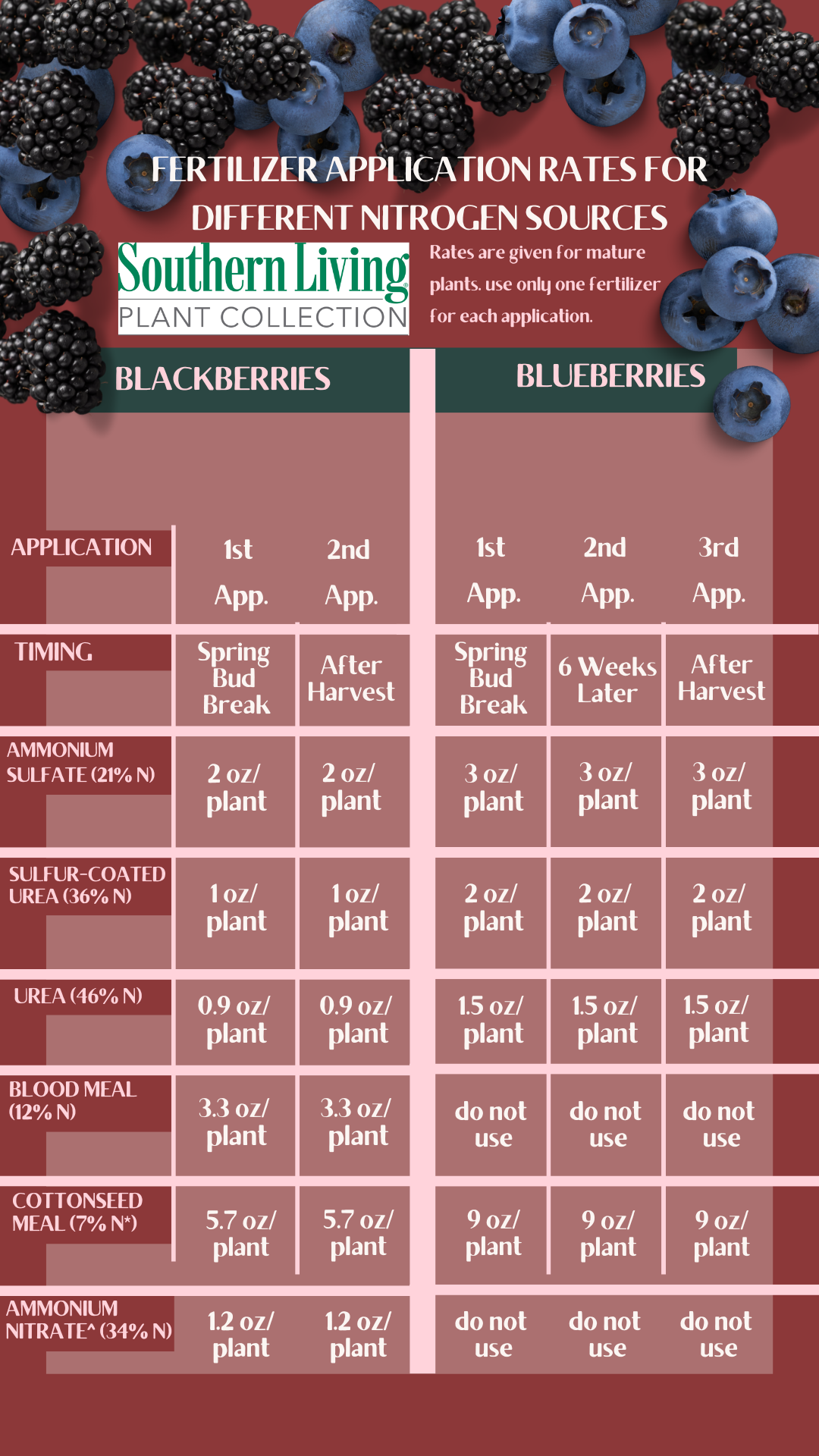Discover the Best Blueberry Plant Fertilizer: Tips for Thriving Blueberry Plants

Blueberries are not only delicious but also packed with nutrients, making them a popular choice for home gardeners. However, to achieve a bountiful harvest of thriving blueberry plants, proper fertilization is essential. In this article, we will explore the best fertilizers tailored specifically for blueberries, ensuring they receive the ideal nutrients for optimal growth. From understanding the unique dietary needs of these acid-loving plants to practical tips on application, we’ll guide you in selecting the most effective products. Join us as we uncover the secrets to nurturing your blueberry plants and enjoying an abundant, healthy harvest.
Choosing the Best Blueberry Plant Fertilizer
To ensure successful growth and bountiful yields from your blueberry plants, selecting the appropriate fertilizer is crucial. The best blueberry plant fertilizer typically has a high acidity level, as blueberries thrive in acidic soils with a pH between 4.5 and 5.5. A blend rich in nitrogen is often favored, as it promotes lush foliage, while the presence of essential nutrients like phosphorus and potassium aids in fruit development and overall plant health. Organic options like bat guano, fish emulsion, and well-balanced commercial fertilizers designed for acid-loving plants can enhance soil quality and support vigorous plant growth.
Importance of Soil pH for Blueberries
Maintaining the right soil pH is fundamental for blueberry growth since these plants require acidic conditions to absorb nutrients effectively. A pH range of 4.5 to 5.5 is ideal. Outside this range, the plants may struggle to access vital nutrients, leading to poor growth and reduced fruit production. Regular soil testing can help monitor pH levels, and if adjustments are necessary, amendments like sulfur or organic matter can be introduced to lower pH.
Nutrient Requirements for Blueberry Plants
Blueberries have specific nutrient needs that must be met for optimal growth. Nitrogen, phosphorus, and potassium are the primary macronutrients that drive the health of blueberry plants. In addition, micronutrients such as iron and magnesium are crucial for chlorophyll production and overall vitality. Fertilizers specifically formulated for blueberries will often include these balanced nutrient compositions to cater to their unique requirements.
Organic vs. Synthetic Fertilizers
When choosing a fertilizer for blueberries, gardeners often debate between organic and synthetic options. Organic fertilizers, such as composted manure and blood meal, improve soil structure and provide a slow release of nutrients, fostering a healthier ecosystem. On the other hand, synthetic fertilizers can yield faster results but may lead to nutrient leaching and soil degradation over time. Each approach has its merits, and the choice often depends on the gardener's philosophy and specific soil conditions.
Application Timing for Fertilizers
The timing of fertilizer application significantly influences the performance of blueberry plants. It is generally recommended to apply fertilizers in early spring, just as new growth begins, and follow up with another application during the growing season, particularly if the plants show signs of nutrient deficiency. Avoid fertilizing late in the summer or fall, as this can stimulate new growth that may not withstand winter conditions.
Recommended Fertilizer Products for Blueberries
Several fertilizer products are highly recommended for blueberry cultivation, which cater to their nutritional needs. Products that are specifically labeled for acid-loving plants often contain the right nutrient profile. Choices such as Holly-tone, Miracle-Gro Water Soluble Azalea, Camellia, Rhododendron Plant Food, and Dr. Earth Organic Acid Plant Fertilizer are popular for their effective formulations that promote healthy blueberry growth. These products not only provide essential nutrients but also help maintain the desired soil acidity.
| Fertilizer Type | Acidic Level | Main Nutrients |
|---|---|---|
| Organic (Compost) | pH 4.5 - 6.0 | Nitrogen, Potassium |
| Synthetic (Holly-tone) | pH 4.5 - 5.5 | Balanced NPK |
| Fish Emulsion | pH 4.5 - 5.0 | Nitrogen, Micronutrients |
| Bat Guano | pH 4.5 - 5.5 | High Phosphorus |
| Miracle-Gro | pH 4.5 - 5.5 | Nitrogen, Phosphorus, Potassium |
What is the best fertilizer for blueberries?

The best fertilizer for blueberries is one that caters specifically to their nutritional needs and soil and pH requirements. Blueberries thrive in acidic soils with a pH range of 4.5 to 5.5. Therefore, fertilizers that boost soil acidity and provide essential nutrients such as nitrogen, phosphorus, and potassium are ideal. Organic options, like natural compost or well-rotted manure, are also beneficial for promoting healthy growth and improving soil quality.
Understanding Blueberry Nutritional Needs
Blueberries have specific nutrient requirements that differ from other fruit bushes. They require a balance of macronutrients and micronutrients for optimal growth. Notably, they are sensitive to high levels of fertilizer salts. Essential nutrients include:
- Nitrogen: Promotes healthy leaf growth and overall plant vitality.
- Phosphorus: Essential for root development and flower formation.
- Potassium: Enhances fruit quality and disease resistance.
Choosing the Right Fertilizer Type
Several types of fertilizers can be used for blueberries. The key is to select one formulated for acid-loving plants. Consider the following options:
- Organic Fertilizers: Include compost, peat moss, and ammonium sulfate, which enhance soil acidity.
- Granular Fertilizers: Slow-release granules can provide a steady supply of nutrients over time.
- Liquid Fertilizers: Quick-acting and easily absorbed, ideal for immediate nutrient needs.
Importance of Soil pH for Blueberries
The pH level of the soil is crucial for blueberries. They prefer acidic soils, which help them absorb nutrients effectively. Maintaining the appropriate pH can prevent nutrient deficiencies:
- Testing Soil pH: Regular soil tests help in understanding the pH level and make necessary adjustments.
- Adjusting pH: Use materials like sulfur or peat to lower pH levels as needed.
- Avoiding Alkaline Soils: High pH levels can lead to nutrient lockout, inhibiting growth.
Application Timing for Optimal Growth
Timing the application of fertilizer is crucial for maximizing the benefits for blueberry plants. Here’s how to effectively manage fertilization:
- Pre-bloom Fertilization: Apply fertilizer in early spring to boost growth before flowering.
- Post-harvest Feeding: A light application after harvest can support the continuation of growth.
- Avoid Late Fertilization: Fertilizing too late in the season can lead to new growth which may be susceptible to winter damage.
Signs of Nutrient Deficiency in Blueberries
Recognizing signs of nutrient deficiency can help in timely intervention and application of fertilizers. Common symptoms include:
See also:
- Yellowing Leaves: Often indicates nitrogen deficiency.
- Poor Fruit Development: A sign of phosphorus or potassium deficiency.
- Stunted Growth: General lack of nutrients or improper pH levels can cause this issue.
Can you put 10-10-10 fertilizer on blueberries?

Applying 10-10-10 fertilizer to blueberries is generally not recommended. Blueberries have specific nutrient requirements that differ from those of many other plants. The typical 10-10-10 fertilizer contains a balanced ratio of nitrogen, phosphorus, and potassium, which may not suit the needs of blueberry plants, especially since they thrive in acidic soils with lower nutrient levels.
Understanding Blueberry Nutritional Needs
Blueberries prefer an acidic soil environment with a pH level between 4.5 and 5.5. Here’s a breakdown of their nutritional needs:
- Low Nitrogen Requirements: Blueberries require lower amounts of nitrogen compared to other fruiting plants.
- Balanced Nutrients: They benefit from a balanced source of nutrients like magnesium and sulfur rather than standardized fertilizers.
- Acid Formation: They thrive with fertilizers that enhance soil acidity and microbial activity.
Effect of 10-10-10 Fertilizer
Using a 10-10-10 fertilizer on blueberries can lead to several potential issues:
- Soil pH Alteration: This fertilizer may raise the pH, making the soil less acidic.
- Over-Nutrition: It could result in excess nitrogen, promoting leaf growth over fruit production.
- Root Damage: High levels of phosphorus can be detrimental, potentially causing root damage.
Alternative Fertilizer Options for Blueberries
There are better fertilizers suited for blueberries that maintain the appropriate soil conditions:
- Acidic Fertilizers: Options like ammonium sulfate or sulfur-coated urea can meet their nitrogen needs.
- Organic Options: Materials such as pine bark or composted pine needles can add both nutrients and acidity.
- Specialized Blueberry Fertilizers: Formulations specifically designed for acid-loving plants are widely available.
Application Timing and Frequency
When fertilizing blueberries, timing and frequency are essential:
- Early Spring Application: Fertilizers should be applied in early spring as new growth begins.
- Subsequent Applications: A second application may be warranted in mid-summer if necessary.
- Monitoring Growth: Regularly check plant health to adjust feeding accordingly.
Signs of Nutrient Deficiency
Recognizing nutrient deficiencies in blueberries can help you adjust your fertilization practices:
- Yellowing Leaves: Indicates potential nitrogen deficiency or pH imbalance.
- Poor Fruit Development: May signal phosphorus deficiency or root issues.
- Leaf Drop: Can be a sign of over-fertilization or nutrient lockout in high pH soils.
What does Epsom salt do for blueberry plants?

Epsom salt, chemically known as magnesium sulfate, plays a significant role in enhancing the growth and productivity of blueberry plants. Blueberries require a specific balance of nutrients and a slightly acidic soil environment to thrive. Here's how Epsom salt contributes to blueberry plant health:
1. Magnesium Supply: Epsom salt provides magnesium, an essential nutrient that aids in photosynthesis and chlorophyll production. A good level of magnesium can result in healthier leaves and overall plant vigor.
2. Improved Nutrient Absorption: Magnesium helps in the uptake of other essential nutrients, including nitrogen and phosphorus, which are vital for the growth of blueberry plants. Adequate magnesium levels can improve overall plant health and fruit quality.
3. pH Balancing: Blueberries thrive in acidic soils, and Epsom salt can help maintain the desired pH levels. This can lead to better nutrient availability in the soil, promoting greater growth and berry production.
4. Enhanced Flowering and Fruiting: Adequate magnesium also promotes stronger flowering and improved fruit set. When blueberry plants are healthy and well-nourished with the right balance of nutrients, they tend to produce more abundant and higher quality fruit.
5. Seasonal Application Benefits: Using Epsom salt during specific growing periods can yield enhanced benefits. For instance, applying Epsom salt in early spring as the plants begin to grow can help kickstart their nutrient uptake and blooming cycle.
See also:
Benefits of Magnesium for Blueberry Plants
Magnesium is a key player in plant health, especially for blueberries. Here's how it benefits them:
- Photosynthesis: Magnesium is a central atom in chlorophyll, which allows plants to convert sunlight into energy.
- Leaf Health: Adequate magnesium levels enhance leaf greenness and reduce leaf yellowing, indicating a healthier plant.
- Root Development: Magnesium facilitates better root absorption of water and nutrients, crucial for overall plant development.
How to Apply Epsom Salt to Blueberry Plants
Applying Epsom salt correctly ensures maximum benefit for blueberry plants:
- Dissolve in Water: Mix about 1 tablespoon of Epsom salt in a gallon of water for easier application.
- Apply During Growing Season: Apply the solution in early spring and again during flowering for the best results.
- Monitor Soil pH: Regularly check soil pH levels to ensure they remain within the optimal range for blueberries, typically between 4.5 and 5.5.
Signs of Magnesium Deficiency in Blueberries
Recognizing magnesium deficiency early can help salvage blueberry plants:
- Interveinal Chlorosis: Yellowing between the veins of older leaves is a classic sign of magnesium deficiency.
- Poor Growth: Stunted growth and reduced yield can occur due to inadequate magnesium levels.
- Leaf Drop: Deficient plants may shed leaves prematurely, impacting fruit quality and quantity.
Other Nutrients Interacting with Epsom Salt
Epsom salt enhances nutrient absorption and interacts with other essential elements:
- Nitrogen Interaction: Adequate magnesium helps plants utilize nitrogen efficiently, essential for robust leaf and stem growth.
- Phosphorus Availability: Magnesium can improve phosphorus availability, crucial for energy transfer and stress responses in plants.
- Calcium Balance: While magnesium and calcium are both necessary, they need to be balanced to avoid nutrient competition, ensuring healthy blueberry plants.
Potential Risks of Overusing Epsom Salt
While Epsom salt is beneficial, caution is necessary to avoid pitfalls:
- Over-Fertilization: Excessive magnesium can lead to nutrient imbalances, particularly with calcium, resulting in poor plant health.
- Soil Salinity: Overuse of Epsom salt can increase soil salinity, which may hinder water absorption and nutrient uptake.
- Monitoring is Key: Regular soil testing can help prevent the negative effects of overusing Epsom salt on blueberry plants.
How to make blueberry plants thrive?

To make blueberry plants thrive, it's essential to focus on several key factors including soil quality, sunlight exposure, watering practices, fertilization, and pest management. Here’s a detailed guide.
Soil Quality
Blueberry plants require acidic soil with a pH level between 4.5 and 5.5. This type of soil helps optimize nutrient availability.
- Test the soil pH before planting.
- Amend the soil with sulfur or peat moss if necessary to increase acidity.
- Ensure good drainage as blueberries do not tolerate waterlogged conditions.
Sunlight Exposure
Blueberry plants thrive best in full sun, meaning they need at least 6 to 8 hours of direct sunlight each day for optimal growth.
- Choose a planting location that receives abundant sunlight.
- Ensure there are no large trees or structures that could cast shadows over your plants.
- Monitor your plants during different seasons to assess sun exposure.
Proper Watering Practices
Consistent moisture is vital for blueberry plants. However, overwatering can lead to root rot, so balance is key.
- Water the plants regularly, especially during dry spells.
- Use mulch to help retain moisture in the soil.
- Check soil moisture before watering to avoid over-saturation.
Fertilization
To promote healthy growth and fruit production, blueberries require specific nutrients, particularly nitrogen.
- Apply a specialized fertilizer formulated for acid-loving plants, usually in early spring.
- Follow the package instructions for the correct amounts and frequency.
- Consider adding organic matter such as compost to enrich the soil.
Pest Management
Pest control is important to protect blueberry plants from common threats like aphids and spider mites.
- Regularly inspect plants for signs of pests or disease.
- Use insecticidal soap or natural predators to manage pest populations.
- Implement good cultural practices to prevent infestations, such as maintaining plant hygiene and proper spacing.
Questions from Our Readers
What is the best fertilizer for blueberry plants?
The best fertilizer for blueberry plants is one that is specifically designed for acid-loving plants. Look for a fertilizer with a balanced ratio of nitrogen, phosphorus, and potassium, often labeled as azalea or rhododendron fertilizer. These will help your blueberries thrive by providing essential nutrients while maintaining the required soil acidity.
When should I fertilize my blueberry plants?
You should fertilize your blueberry plants in early spring before new growth begins. This timing allows the plants to absorb the nutrients effectively as they come out of dormancy. Additionally, a second application may be beneficial in early summer to support fruit development, but be cautious not to over-fertilize as it can harm the plants.
See also:
How often should I apply fertilizer to my blueberry plants?
Generally, you should apply fertilizer to your blueberry plants once in early spring and possibly again in early summer. This practice ensures they receive adequate nutrition during their growing season without overwhelming them with excessive fertilizer. Always follow the manufacturer's recommendations for specific guidance on frequency and quantity.
Can I use compost as fertilizer for my blueberry plants?
Yes, compost can be an excellent organic option for fertilizing blueberry plants. It not only provides essential nutrients but also helps improve soil structure and moisture retention. However, ensure that your compost is well-aged and acidic, as blueberries prefer lower pH levels for optimal growth.

If you want to read more articles like Discover the Best Blueberry Plant Fertilizer: Tips for Thriving Blueberry Plants, we recommend you check out our Fertilise category.
Leave a Reply
Related Articles